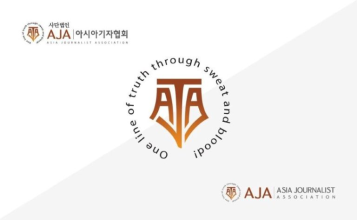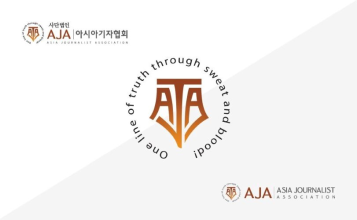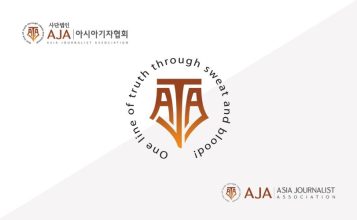AJA Newsbites – June 14, 2025

AJA Newsbites is a curated roundup of major news and developments from across Asia, brought to you by members of Asia Journalist Association (AJA)
Lee Sang-ki, THE AsiaN, Korea
On June 13, President Lee Jae-myung met with top executives from South Korea’s five major conglomerates, pledging robust support and deregulation to spur economic growth. Emphasizing a “one team” approach between the government and the business community, he also welcomed personnel recommendations from industry leaders.
The two-hour meeting addressed key trade concerns—including U.S. tariffs—as well as domestic economic challenges. Business leaders, including Samsung Chairman Lee Jae-yong and Hyundai Motor Group Chairman Chung Eui-sun, expressed commitments to new investments and job creation.
Representatives from small and medium-sized enterprises (SMEs) highlighted ongoing structural issues, such as a shrinking consumer base due to demographic changes. Concluding the meeting, President Lee stated, “Success as president means improving the lives of our citizens—let’s work on that together.”
Chhay Sophal, Cambodia News Online, Cambodia
Hun Sen, President of the Cambodian Senate, President of the Cambodian People’s Party, and Former Prime Minister, issued a message last night and, this morning, addressed the Royal Government again in his capacity as leader of the ruling party. He stated that if the Thai authorities continue to refuse reopening the border checkpoints, which they have unilaterally closed, Cambodia must implement several measures: Suspend Imports of Thai Goods, Support for Agricultural Exports, Redirect Medical Treatment Abroad, Manage Returning Workers, Maintain Military Readiness, Border Province Preparedness.
Hun Sen warned that if Thailand does not resolve the reopening of the border checkpoints and return to normalcy, Cambodia will have no choice but to implement all of these measures. At the same time, he urged Cambodian citizens to refrain from extremist actions. He noted that current tensions stem from extremist groups and certain military factions in Thailand, as the Thai government lacks effective control over its armed forces—unlike Cambodia, where the military remains firmly under civilian command.
Nasir Aijaz, Sindh Courier, Pakistan
Planning and Development Minister Ahsan Iqbal stated at a press conference on Thursday that India has attempted to use water as a weapon. While India cannot legally stop Pakistan’s water under the Indus Waters Treaty (IWT) — nor will it be permitted to do so — it may still attempt to disrupt the flow, he cautioned.
To counter these potential threats and ensure long-term water security, the government is moving swiftly to complete the Diamer Bhasha and Mohmand dams. The Diamer Bhasha Dam will have a storage capacity of 6 million acre-feet, while the Mohmand Dam will add around 1 million acre-feet, bringing the total capacity to approximately 7 million acre-feet, the minister explained.
However, it is important to note that the people of Sindh province strongly oppose the construction of dams on the Indus River. Due to the presence of existing dams, Sindh has already experienced water shortages. The dispute between Sindh and Punjab over water projects has been ongoing for years. Punjab is frequently accused of diverting river water, and recently, people in Sindh staged months-long rallies and blocked highways leading to Punjab in protest against the dams and canals.
Habib Toumi, THE AsiaN, Bahrain
In response to rapidly escalating regional tensions, Bahraini citizens residing in or transiting through Iraq have begun leaving the country by land, following Iraq’s suspension of all air traffic and the closure of its national airspace.
The decision, announced early Friday by Iraq’s Ministry of Transport, came in the aftermath of Israeli airstrikes on targets in Iran — a development that has reverberated across the region, heightening security concerns in several neighboring countries.
With commercial flights grounded and no immediate timeline for resumption, Bahraini nationals turned to overland routes as the only viable option for safe departure. Authorities in Bahrain are reportedly monitoring the situation closely and coordinating with regional partners to ensure the safety of their citizens.
As tensions continue to mount, governments across the Middle East
ⓒ THE AsiaN | All rights reserved
This content is copyrighted by THE AsiaN. If you wish to share it, please do so without modifying the original text and always include the source link. Unauthorized editing or sharing without proper attribution may result in legal consequences.



